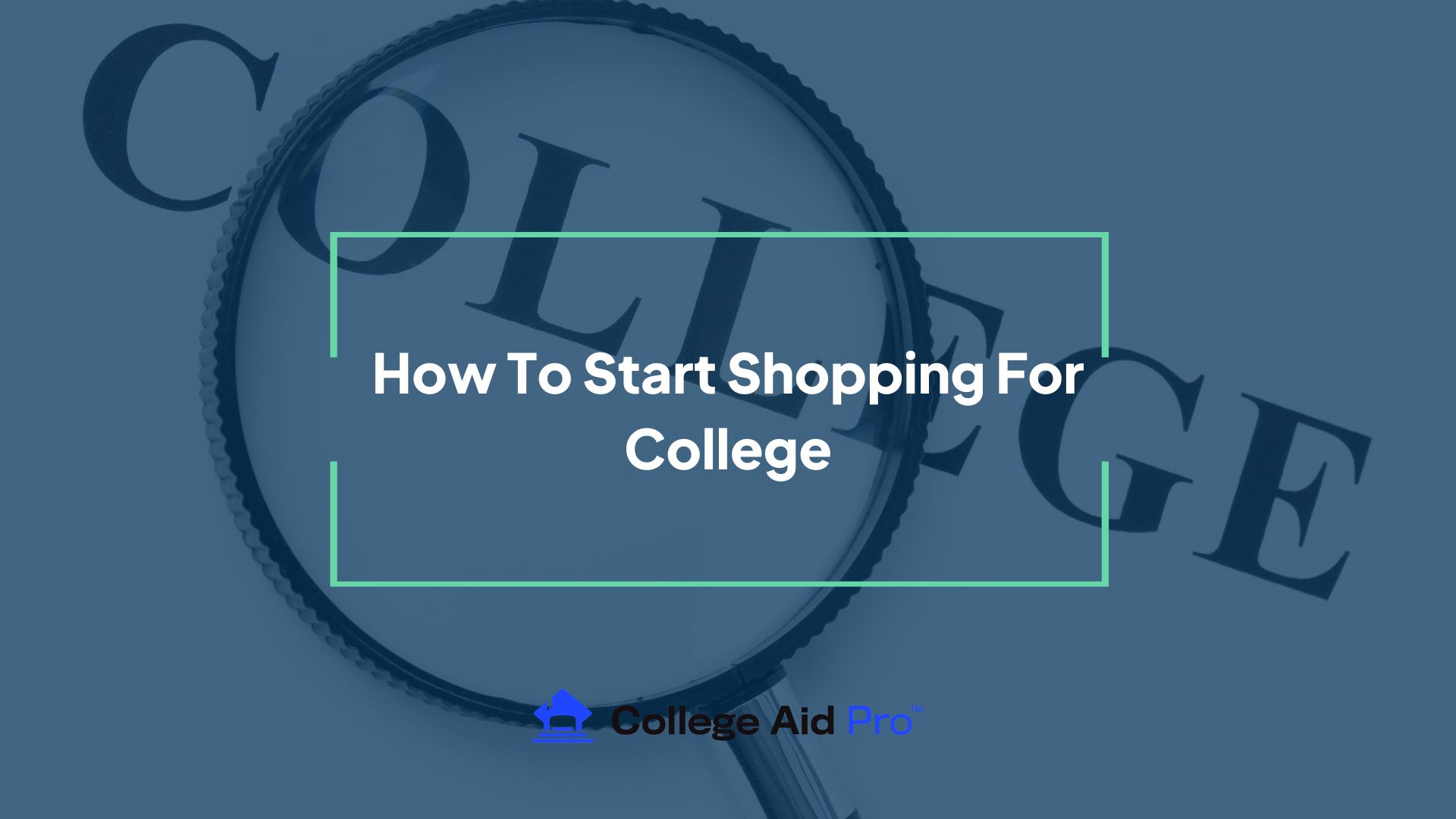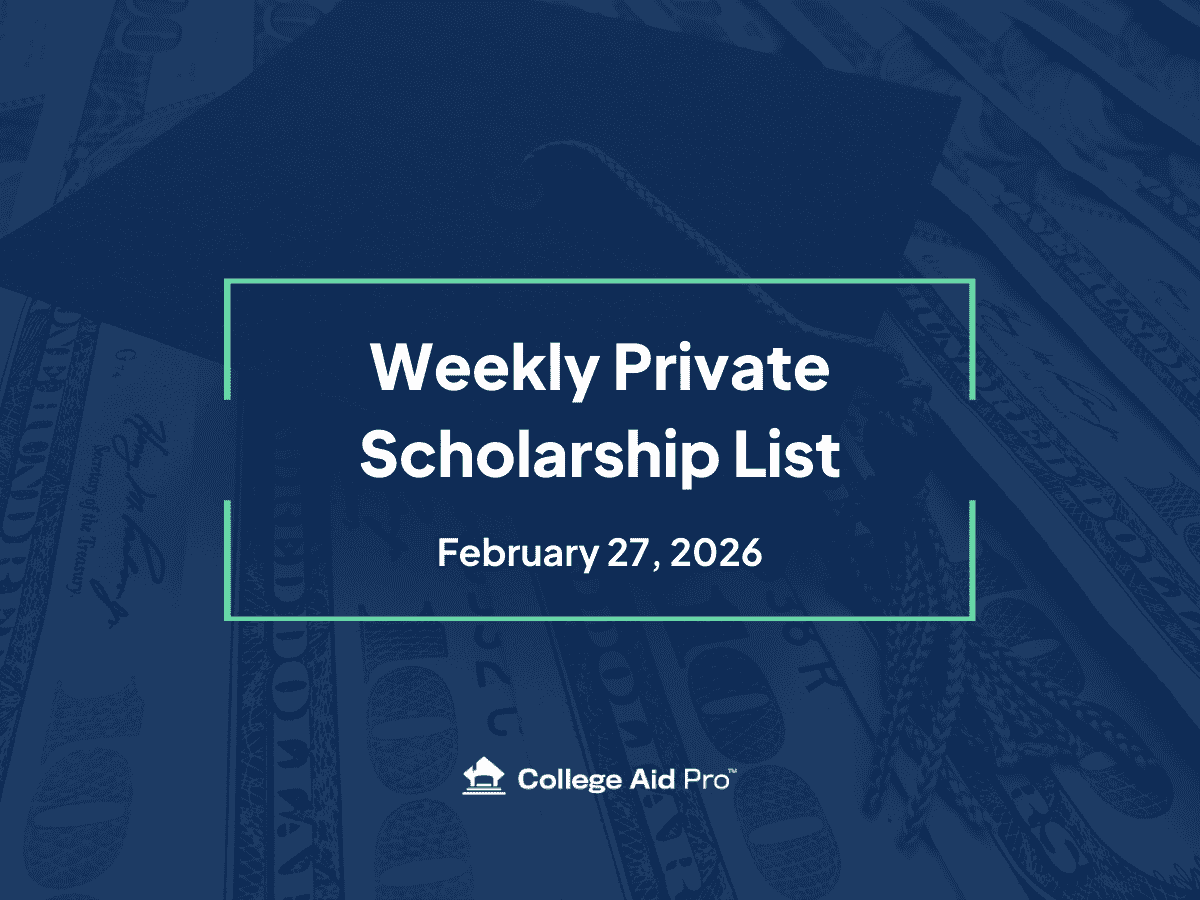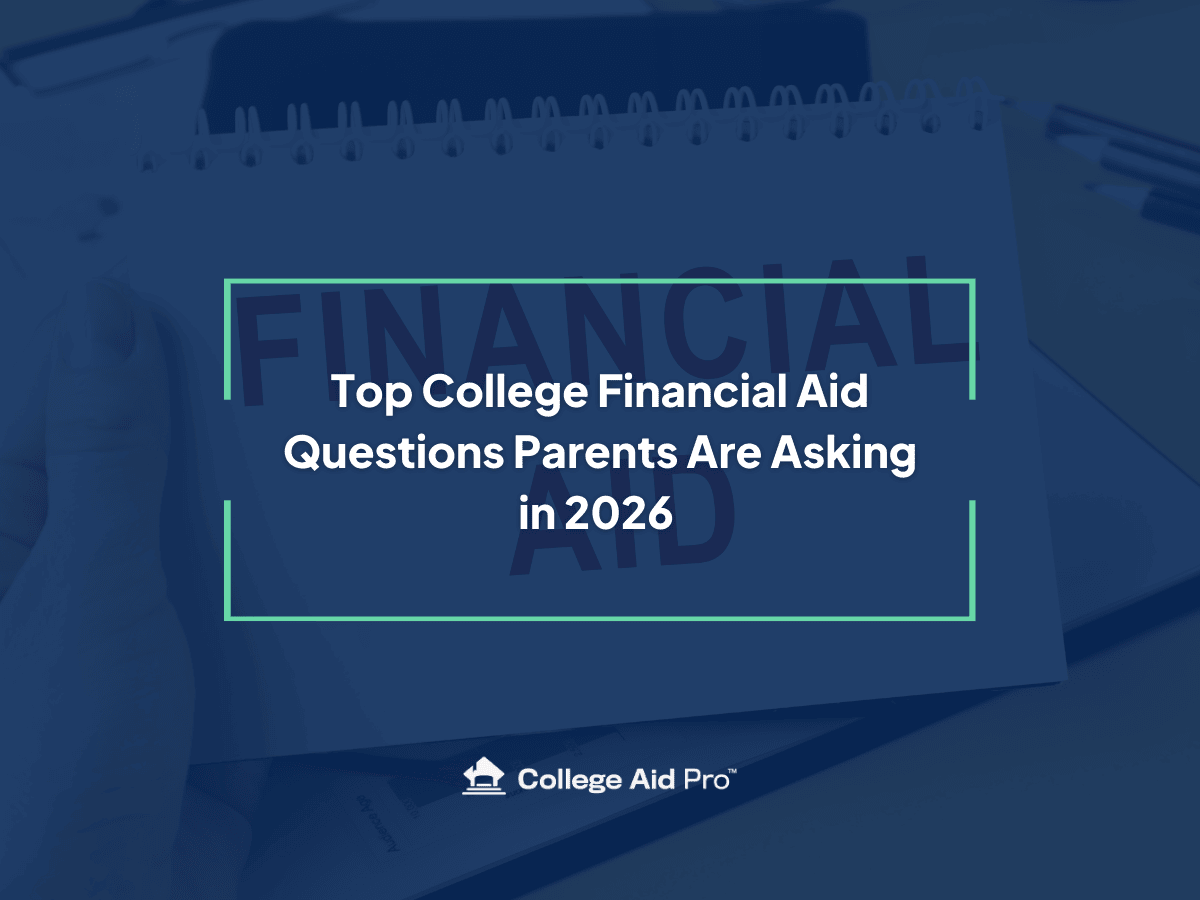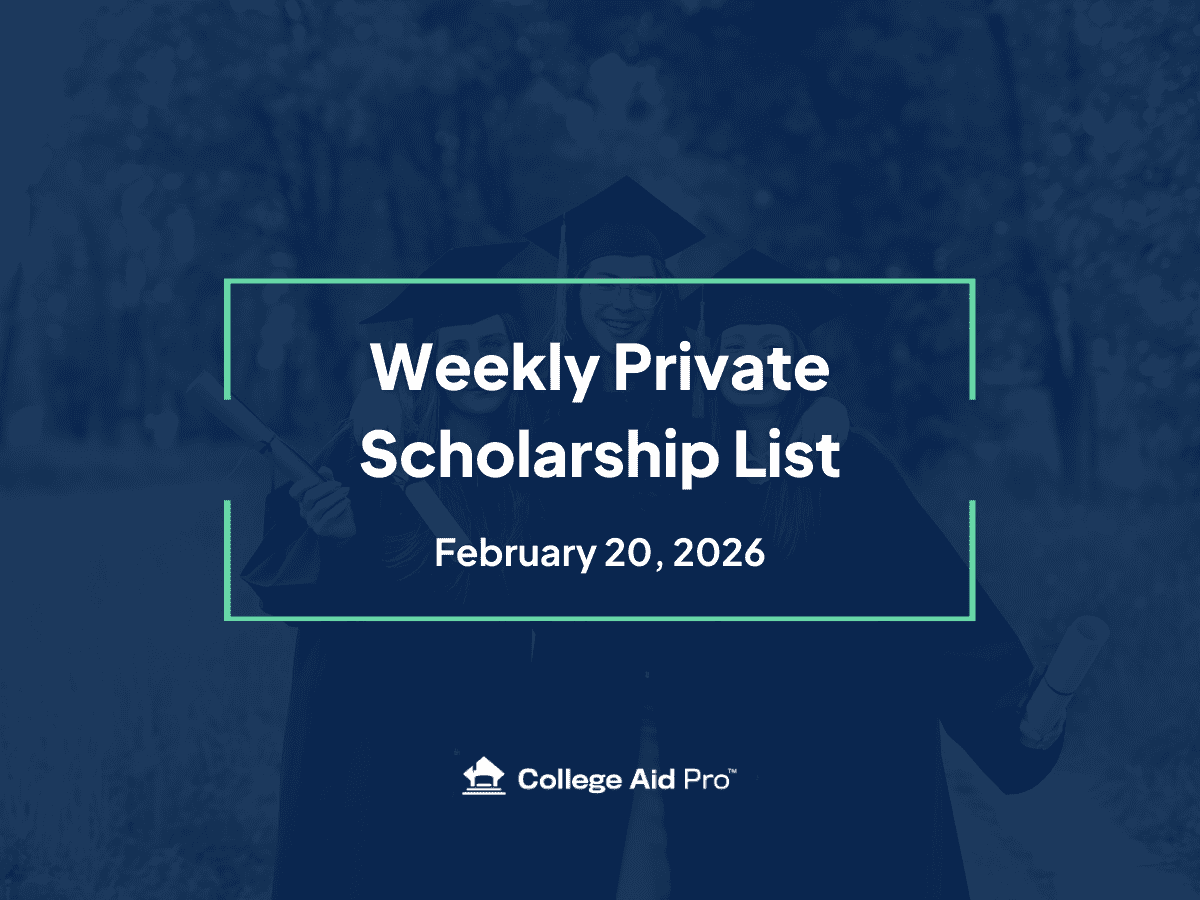So, you’ve been talking to your kid about the future and it’s become pretty clear that college is in the cards. One decision down – 500 to go! Of course you want the best for your child, but there are so many choices and variables when it comes to planning for college. You may feel like you’re overwhelmed before you’ve even started – but don’t be. College Aid Pro has worked with thousands of families, and the guidance you’ll find here will help you avoid that anxiety.
Where To Begin?
We’re all about helping students find the right college experience that won’t create too much financial stress down the road, so, naturally, we like to start with the finances. However, there are many other factors that must also play a role that will be addressed later in this article.
The Finances
A fair number of students will find a school early on in the process that they absolutely love and feel strongly about attending. Some of those students end up getting into their chosen school only to discover in March or April that it’s completely unaffordable for them. Avoiding that scenario, which puts enormous pressure on parents and students to make a decision that may hurt them in the long run, is exactly why it’s a good idea to start with the finances.
Tallying up the resources your student has available to pay for college doesn’t have to be difficult, and we’ve written about that process extensively here. Basically, it just means adding up the following to figure out how much your family can afford to pay for all four years of college.
- Money already saved that can safely be used for college
- Money that you expect to save between now and when your student goes to college
- Money you can afford to set aside for college while your student is in college
- Money family or friends have committed to contribute towards college
- Money your student can contribute
- The amount your student can reasonably afford to borrow in student loans
- Money you plan to borrow that won’t hinder your other financial goals
If you have a MyCAP account, the tool walks you through the calculation excluding the student loans and then helps you search for schools that fall within your budget.
Establish Educational Goals
College is a time of learning, and not only in support of a future career, so it is helpful to nail down what needs college is meant to fulfill for your student in particular. For example, if your student has no idea what to major in, one of their goals could be to explore different career options. That can’t be done at a small school with few major choices, and, therefore, is helpful in narrowing down schools.
Here are some questions for discussion that might help you and your student establish some college goals that will in turn help them build a list of schools to visit.
- Are there specific careers, extracurricular activities, or sports that are important to you?
- Is there a specific company or industry in which you’d like to work? If so, from which schools do they recruit? In what areas of the country are they generally located?
- Are there parts of the country you definitely do or don’t want to be in?
- Do you have strong feelings about participating in research or studying abroad?
- What about the size of a school and student population? Think about how big your current high school is – do you want something relatively the same size, or something much bigger or smaller?
- If you are uncertain about choosing a major, is it important for you to choose a school with a strong career guidance office or the opportunity to explore majors before declaring one?
Be realistic
School admissions officers often have the incredibly difficult task of choosing between thousands of bright and talented students. Not every kid with a 4.0 or higher can get into an Ivy League school. The competition is extremely tough. Set your student up for success by learning how to assess their chances of admission.
One trick I like to use in myCAP is to look at the middle 50% GPA and test scores for each school. If a student’s grades and scores are above that (in the top 25%), their chances of getting in are higher than if they are in the average range or below average.
Find out what resources are available at your high school
High school guidance counselors are extremely busy people, so your first stop should be to the school website. There may be a page dedicated to college planning, financial aid and scholarships there. You may find that your school has a counselor dedicated to college related guidance. The best sites also have a calendar allowing students to schedule meetings with the counselor.
Guidance counselors are a great resource for local scholarship information, general financial aid instructions and basic admissions guidance. You may also need to reach out to them for references and official transcript requests unless that process is automated at the school.
When it comes to more specific information about the cost of college, paying for college, or how to handle special situations, the guidance office may or may not be able to help you.
Put together a “team” of resources
If your guidance department can’t do all the legwork for you (pro tip- they can’t, YOU need to do some/most of it), you’ll benefit from identifying other sources of quality information. To start with, myCAP has experts ready to help you with anything from individual questions about the process to our white glove “Wake Me When It’s Over” service.
Other places you might find reliable information include:
- Individual college websites and admissions counselors
- College Fairs
- The MyCAP blog
- Facebook pages and groups (College Aid Pro has a FB group called Paying for College & Scholarships) run by seasoned admissions professionals
- StudentAid.gov
- College Board’s BigFuture site
- Your state’s Department of Education
- IECAonline.com
Use MyCAP to search for schools
Not only will myCAP help you put together a college budget, it also has tools to help you do an advanced search for schools that meet your other requirements, such as school size, geographic location, major, etc.
Look for feeder schools
If your student has a good idea of what company they’d like to work for or what industry they are interested in, they may be able to locate specific schools that serve as recruitment hotbeds for those companies or that industry.
Set up informational interviews
Many professionals are open to sharing their experience and journey with the upcoming generation. Your student can learn a lot about what they may or may not enjoy doing by talking to those who are already doing that job. Have them talk to as many people as possible among your sphere of friends and acquaintances. If they are proactive, they can also reach out through social media to professionals who they are interested in talking with to ask for an informational interview to learn more about a specific type of work.
Some good questions to ask may include:
- How did you become a _________?
- What do you like most/least about your work?
- Describe a typical day or week at work?
- What soft skills do you feel are most important for what you do?
- What type of person would be well suited/ill suited for that job?
Talk to current college students
Students already in college are a great resource for high school students to learn more about what college is like. Those students may also be able to share how their expectations panned out and what they wish they had known when they were doing their own college search.
Visit Schools
Try to arrange school visits when school is actually in session. It’s good to be able to see the current college kids in motion. Your student should be prepared to show enthusiasm and ask good questions when taking school tours. They should also try to talk to professors and students within their chosen major.
When To Start Shopping
As soon as the student shows interest in a specific career or school, but no later than Junior Year. Sometimes students who have many years to go before college are already starting to set their heart on attending a specific school. As parents, it is important to get in front of that with a conversation about finances and let them know that whichever school they ultimately attend must be affordable.
For a student that isn’t thinking about choosing a school but is planning to go to college, don’t wait until Senior year to start looking. The application season starts in the fall, so if it takes a while to settle on a school list, they may miss out on some opportunities and deadlines. It will also leave them little time to visit schools and consider all of their options.
The easiest way to end up at the right school is to identify what the criteria are from the very beginning. By following this guidance, you give yourself the best opportunity of finding the best option for your student.



